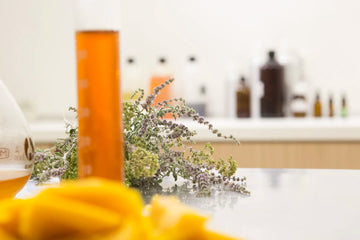In recent years, organic certifications have gained immense popularity. As consumers are becoming increasingly health-conscious and environmentally aware, understanding these certifications can lead to better purchasing decisions. This article delves into the various organic certifications available, clarifying their meanings, and helping you navigate the complexities of organic products.
Why Choose Organic?
Organic products are often marketed as being healthier and more environmentally friendly. But what exactly does "organic" mean? Generally, organic farming practices encourage ecological balance and biodiversity. They typically avoid synthetic pesticides, fertilizers, and genetically modified organisms (GMOs). As a result, the food we consume and the personal care products we use often carry organic labels that signify their adherence to certain standards.
Understanding Organic Certifications
Not all organic certifications are created equal. Different organizations and certifying bodies set their own standards for organic products. Understanding these various certifications can help consumers make more informed choices. Below, we break down some of the most recognized organic certifications you may encounter.
USDA Organic
The United States Department of Agriculture (USDA) is perhaps the most recognized organic certifying body in the U.S. For a product to be labeled as "USDA Organic," it must meet strict standards. These include:
- Products must be grown without synthetic pesticides or fertilizers for at least three years.
- Genetically modified organisms (GMOs) are prohibited.
- Soil and crop health must be maintained.
- Non-agricultural ingredients in processed products must be 100% organic or on the USDA's list of approved substances.
When you see the USDA Organic seal, you can trust that the product has undergone rigorous testing and complies with these guidelines.
EU Organic Certification
In Europe, the EU Organic certification is comparable to the USDA Organic label. The European Union has its own set of organic farming standards that include:
- Use of non-GMO seeds and breeds.
- Prohibition of synthetic chemical pesticides and fertilizers.
- Restrictions on livestock feed, which must also be organic.
Products that carry the EU Organic logo guarantee consumers adherence to these stringent regulations, ensuring a trusted organic experience.
Canada Organic
Canada has its own certification, known as the Canada Organic Regime. Similar to both the USDA and EU certifications, the Canada Organic label ensures:
- No synthetic pesticides or fertilizers.
- No GMOs.
- Animal welfare is prioritized with organic standards applied to livestock.
This certification helps Canadian consumers feel confident in their organic product choices.
Other Significant Certifications
Non-GMO Project Verified
The Non-GMO Project offers a verification seal that assures consumers a product does not contain genetically modified ingredients. While it is not strictly an "organic" certification, many organic products are also non-GMO. The Non-GMO Project Verified seal guarantees that:
- The product has been tested and certified to be free from GMOs.
- Supply chains are audited to prevent contamination.
This label is particularly valuable for shoppers who have concerns about GMOs but may not be familiar with all the requirements of organic certifications.
Fair Trade Certification
While Fair Trade Certification mainly focuses on social and economic justice, it often intersects with organic standards. This certification ensures that:
- Producers earn fair prices for their products.
- Environmental sustainability is encouraged.
- Safe working conditions in agricultural communities are promoted.
Many organic products, particularly in the coffee and chocolate industries, proudly display the Fair Trade logo.
Cosmetic Certifications
The beauty and personal care industry has begun to embrace organic certifications as well. The term "organic" in cosmetics is particularly relevant for products like moisturizers. For instance, if you're looking for a moisturizing cream for dry skin, checking for organic certification can provide peace of mind about the ingredients being used.
Organizations like ECOCERT and the Natural Products Association (NPA) provide certification for organic cosmetics. These certifications often require:
- A majority of the ingredients must be of natural origin.
- No artificial colors or fragrances.
- Ethical sourcing of raw materials.
Farm-to-Face: The Importance of Transparency
When considering organic products for skincare, like creams or oils, transparency in the supply chain becomes crucial. For example, if you're exploring the benefits of natural fats in your beauty routine, beef tallow for face has been gaining popularity due to its moisturizing properties. Understanding the organic certification behind such products can help you make more conscientious choices.
Why Certifications Matter
Choosing products with recognized organic certifications isn't just about personal preference; it impacts environmental sustainability, health, and social practices as well.
Health Benefits
Products that adhere to strict organic standards typically contain fewer harmful chemicals. These benefits are especially relevant in a world where there's growing scrutiny of what's in our food and beauty products. As consumers, buying certified products means investing in your health and the well-being of the planet.
Environmental Impact
Organic farming practices are designed to reduce pollution, conserve water, and promote soil health. By opting for certified organic products, you contribute to a healthier ecosystem. This is a vital step not only for individual health but also for future generations.
Supporting Ethics and Fair Trade
Many organic certifications also incorporate ethical practices. Whether it’s ensuring fair wages for farmers or practicing sustainable farming methods, these certifications encourage businesses to maintain not just a healthy product but also to care for their community and the environment.
Common Misconceptions About Organic Products
Despite their benefits, many misconceptions persist about organic products. Let's debunk a few of them:
Organic is Always Better
While organic products often come with numerous benefits, "better" can be subjective depending on your needs and dietary preferences. Some products have certain benefits that may not necessarily correlate with their organic status.
All-natural Means Organic
Not all “natural” labels equate to organic. The term "natural" isn’t regulated, meaning companies can use it liberally without adhering to organic standards. Always look for recognized certifications to verify a product's organic integrity.
How to Choose Organic Products Wisely
So, how can you ensure you are making the right choice? Here are some tips:
- Familiarize yourself with different certifications. Brands that are transparent about their certifications tend to be more trustworthy.
- Research the brand's sourcing and production methods. Sustainable practices are often highlighted on a brand's website or product packaging.
- Read reviews and testimonials. Real customers can provide insights into product effectiveness and the brand's practices.
- Educate yourself on the benefits of specific ingredients relevant to you, like those found in moisturizers or natural fats.
Power to Make Informed Choices
The world of organic certifications doesn't have to be overwhelming. Armed with the knowledge of what these certifications entail and how they impact your purchases, you now have the power to make informed choices. The next time you're in the market for a new moisturizing cream for dry skin or considering beef tallow for face, remember the importance of organic certifications and what they represent. By choosing organic, you're not only enriching your life but also contributing positively to a broader mission of sustainability and health.
Embrace the organic journey, and let your choices reflect not just your needs, but also your values. You’ll find that investing in organic products is an investment in a healthier, more sustainable future.



